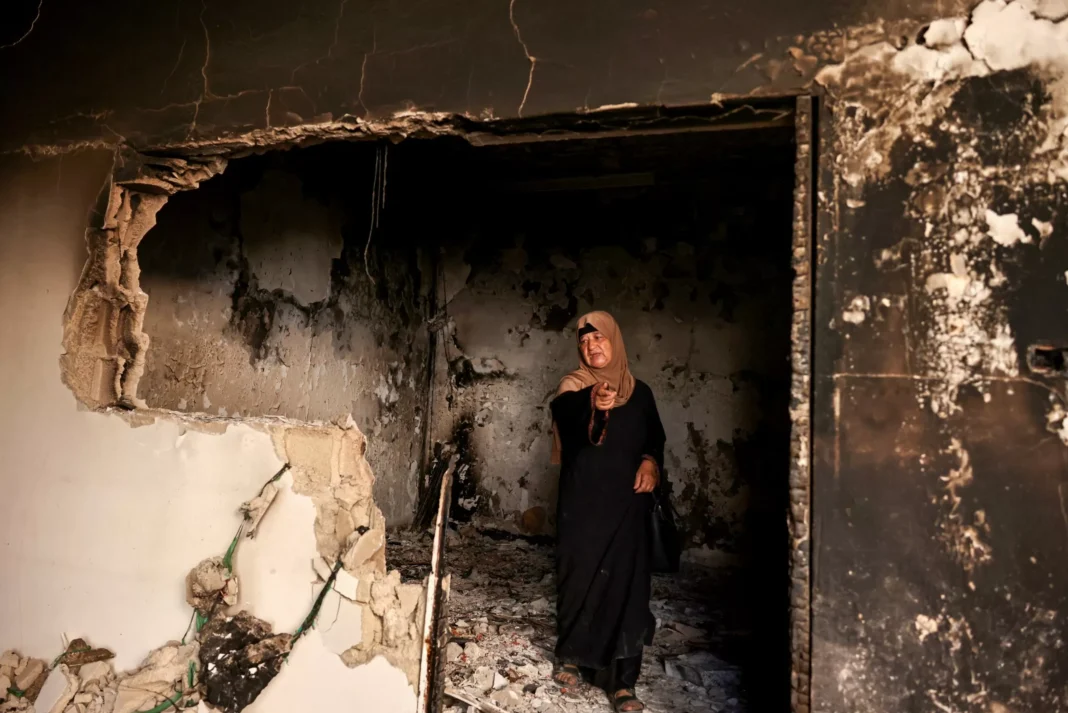Rabbi Arik Ascherman is a man on a mission. As the founder of the organization Torat Tzedek, which promotes human rights and social justice in Israel, he has dedicated his life to standing up for the marginalized and oppressed. And in recent years, one of his main focuses has been the plight of Palestinians living in the West Bank.
In a recent interview, Rabbi Ascherman spoke frankly about the ongoing assault on the West Bank by Jewish settlers, and how the dehumanization of Palestinians has reached extreme levels in Israel.
The rabbi, who has been working in the West Bank for over 20 years, has witnessed the situation deteriorate over time. He describes the settlers’ actions as “violent and destructive,” and notes that they often go unpunished by the Israeli authorities.
“They see Palestinians as less than human, as obstacles to their vision of a Greater Israel,” Rabbi Ascherman says. “And unfortunately, this dehumanization has become ingrained in Israeli society.”
The rabbi points to the recent incident in the village of Khirbet Humsa, where Israeli forces demolished the homes of 73 Palestinians, including 41 children. This was not an isolated event, but rather a part of a larger pattern of displacement and destruction in Palestinian communities.
“These actions are not justifiable in any way,” Rabbi Ascherman emphasizes. “They are a clear violation of human rights and international law.”
But it’s not just the physical violence that concerns Rabbi Ascherman. He also speaks about the psychological impact on Palestinians living under constant threat and oppression.
“Imagine living in a village where every night you hear the sound of settlers chanting ‘death to Arabs’ and throwing rocks at your home,” he says. “This is the reality for many Palestinians in the West Bank.”
The rabbi believes that the dehumanization of Palestinians is not only harmful to the victims, but also to Israeli society as a whole.
“We cannot claim to be a moral and just society if we allow such atrocities to happen,” he says. “It is our responsibility as Jews to speak out against injustice and stand up for the rights of all people, regardless of their religion or ethnicity.”
Rabbi Ascherman’s words are a powerful reminder that the struggle for justice and equality knows no boundaries. As a Jewish leader, he understands the importance of speaking out against injustice, even when it goes against the mainstream narrative.
“I am not anti-Israel, I am pro-human,” he states. “And as a rabbi, I believe it is my duty to speak out against any form of oppression and work towards a more just and peaceful world.”
But the rabbi also acknowledges the challenges of his work. He has faced criticism and even death threats for his activism, but he remains undeterred.
“I cannot stand by and watch as innocent people are mistreated and their rights are violated,” he says. “I will continue to speak out and work towards a better future for all.”
Rabbi Ascherman’s dedication and courage are an inspiration to us all. He reminds us that as individuals, we have the power to make a difference and stand up for what is right.
As the world watches the ongoing conflict in the Middle East, let us not forget the voices of those like Rabbi Ascherman, who refuse to stay silent in the face of injustice. Let us join them in their fight for a more just and peaceful future, where all people are treated with dignity and respect.
In these troubled times, we need more leaders like Rabbi Ascherman, who are willing to speak out and stand up for the rights of the oppressed. Let us listen to his message and be motivated to take action for a better world. As the rabbi himself says, “We cannot be bystanders in the face of injustice. We must be active participants in creating a more humane society.”


